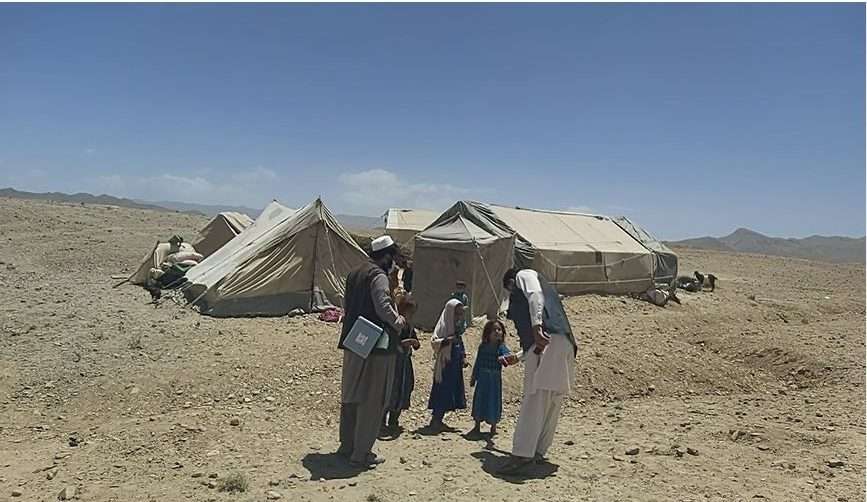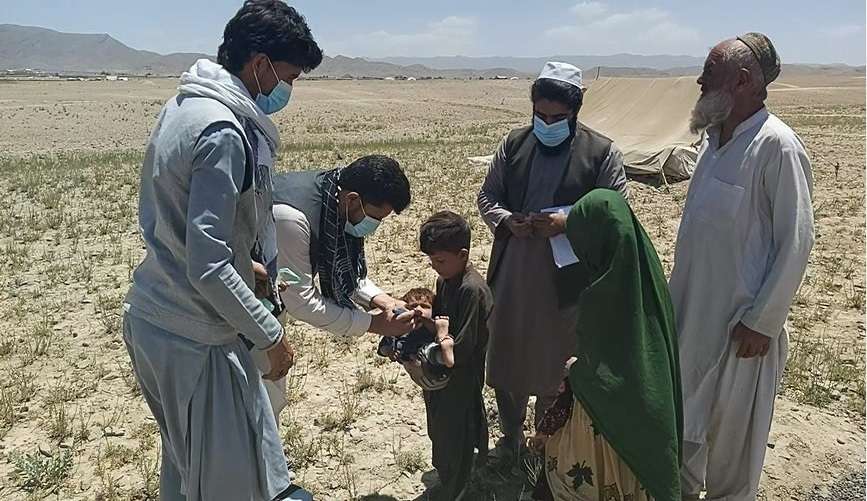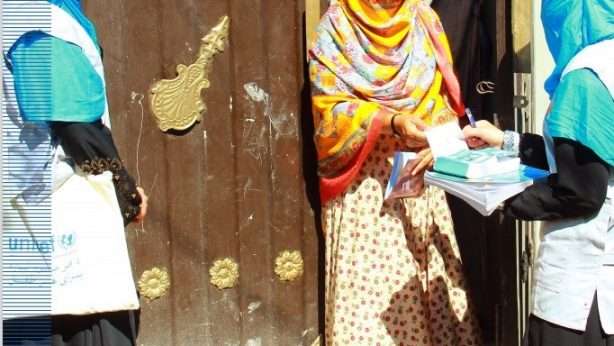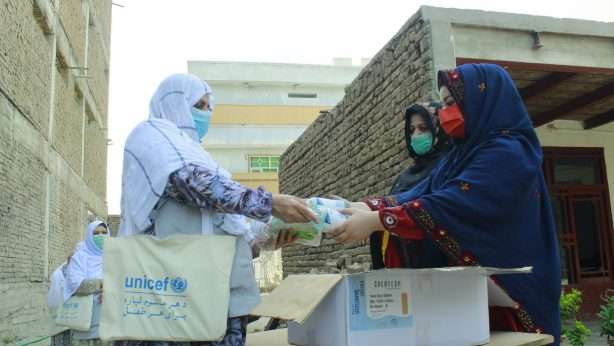Nomadic children are at high risk of polio

Southeast, Afghanistan, July 2021 – In the vast plains of Paktia province, nomadic families have settled in Dawlat Zai camp, which can hardly be seen from horizon due to the gleaming hot sun. Since the beginning of summer, the drought has worsened in these areas and with increased insecurity fears, the communities have been forced to settle into the camps, which are a distant way from health services. Poor sanitation and access to clean drinking water is scare, exposing the nomadic children to the risk of contracting polio virus.
Baloch Khan, one of Kochi ethnic elders in Dawlat Zai area of Paktia province tells of the community challenges to the Polio campaign monitoring team that visited the camp during the recent national polio campaigns.
“The children in this camp are not only at risk of polio,” said Mr. Baloch Khan, who also promotes polio vaccinations in the community. “But with the lack of water and poor sanitation, the children are vulnerable to contracting other diseases like diarrhea that may lead to malnutrition and decrease immunity against polio.”
Although soap bars and other hygiene kits were distributed to the nomadic families in 2020 with the aim to raise Covid-19 protection measures, the community is in dire need for more basic needs intervention.

During the visit to the nomadic camps, the Polio monitoring team observed that most children were vaccinated, only a few were missed but were vaccinated during the catch-up days.
“Whenever the polio vaccination teams come, I ensure they visit each and every tent to vaccinate all the children under five,” explained Mr. Khan. “In the past, we have had children crippled by polio and I want to ensure that doesn’t happen again.”

High population movement has always remained a challenge for the polio programme, especially in tracking and vaccinating children in every campaign round. This explains why the Wild Polio Virus (WPV1) polio cases in south east increased from 2 in 2019 to 6 in 2020. And as of August 2021, one polio case was confirmed early in the year in Ghazni province – the only WPV1 polio case is in the country.
The Polio programme has increased its focus on nomadic children, through tailored vaccination strategies, mapping the population movements and deploying polio transit teams on their paths and settlement areas. However, strengthening inter-sectoral collaboration with other organizations working with these communities remains central key to tackling challenges facing the nomadic population.


